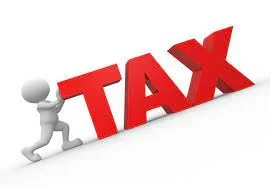
In a bold move to revamp Nigeria's tax system, the Federal Government, under President Bola Tinubu's leadership, is embarking on an ambitious tax reform initiative. The primary objective is to shift a larger share of the tax burden onto the country's wealthier citizens while concurrently reducing corporate taxes. This initiative seeks to significantly increase Nigeria's tax revenue from its current level of 11% of Gross Domestic Product (GDP) to an ambitious 18% within the next three years, according to a recent Bloomberg report.
At the forefront of these reforms is Taiwo Oyedele, who leads a panel appointed by President Tinubu to spearhead the changes. The overarching goal is to ensure that "the rich pay what is fair, and those who are less privileged are protected."
One notable aspect of this reform is the proposed reduction in the corporate income tax rate, which currently stands at an effective rate of over 40%. The government intends to benchmark this new rate against Nigeria's peer countries, with the aim of fostering a more favorable environment for businesses.
This move comes as Nigeria faces a stark wealth disparity, with a small minority holding vast riches while a significant portion of its 200 million people live in extreme poverty. The statistics indicate widespread tax evasion, as tax revenue as a share of GDP in Nigeria is only a third of the 34% average for members of the Organisation for Economic Co-operation and Development (OECD).
Nigeria's complex tax system, characterized by overlapping local, state, and federal jurisdictions and nearly 70 different taxes, contributes to the challenges faced in tax collection. Oyedele emphasizes the need to streamline the system by reducing the number of taxes to single digits, focusing on the top eight that contribute to 99% of the tax revenue.
Boosting tax collection is imperative for Nigeria, despite its substantial oil wealth, as the nation has resorted to substantial borrowing to bridge the gap between government spending and revenue. Since 2015, Nigeria's public debt has surged nearly eightfold to 87.4 trillion naira ($112.6 billion), with debt servicing consuming a staggering 96% of government revenue in 2022.
To facilitate compliance and encourage tax payment, the government is contemplating the introduction of a tax amnesty program, offering relief on old debts and preparing citizens to meet future tax obligations. The effectiveness of this amnesty in enhancing compliance remains to be seen, but it holds potential as part of Nigeria's comprehensive tax reform efforts.




